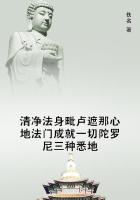The news now spread through the whole company, and the excitement became intense. Fairholme shouted for volunteers to make up a searching party. All the men present responded, and they were about to rush to the college gates in a body when it Occurred to the cooler among them that they had better divide into several parties, in order that search might be made at once in different quarters. Ten minutes of confusion followed. Mr. Jansenius started several times in quest of Henrietta, and, when he had gone a few steps, returned and begged that no more time should be wasted. Josephs, whose faith was ******, retired to pray, and did good, as far as it went, by withdrawing one voice from the din of plans, objections, and suggestions which the rest were ******;each person trying to be heard above the others.
At last Miss Wilson quelled the prevailing anarchy. Servants were sent to alarm the neighbors and call in the village police.
Detachments were sent in various directions under the command of Fairholme and other energetic spirits. The girls formed parties among themselves, which were reinforced by male deserters from the previous levies. Miss Wilson then went indoors and conducted a search through the interior of the college. Only two persons were left on the tennis ground--Agatha and Mrs. Jansenius, who had been surprisingly calm throughout.
"You need not be anxious," said Agatha, who had been standing aloof since her rebuff by Miss Wilson. "I am sure there is no danger. It is most extraordinary that they have gone away; but the man is no more mad than I am, and I know he is a gentleman He told me so.""Let us hope for the best," said Mrs. Jansenius, smoothly. "Ithink I will sit down--I feel so tired. Thanks." (Agatha had handed her a chair.) "What did you say he told you--this man?"Agatha related the circumstances of her acquaintance with Smilash, adding, at Mrs. Jansenius's request, a minute description of his personal appearance. Mrs. Jansenius remarked that it was very singular, and that she was sure Henrietta was quite safe. She then partook of claret-cup and sandwiches.
Agatha, though glad to find someone disposed to listen to her, was puzzled by her aunt's coolness, and was even goaded into pointing out that though Smilash was not a laborer, it did not follow that he was an honest man. But Mrs. Jansenius only said:
"Oh, she is safe--quite safe! At least, of course, I can only hope so. We shall have news presently," and took another sandwich.
The searchers soon began to return, baffled. A few shepherds, the only persons in the vicinity, had been asked whether they had seen a young lady and a laborer. Some of them had seen a young woman with a basket of clothes, if that mout be her. Some thought that Phil Martin the carrier would see her if anybody would. None of them had any positive information to give.
As the afternoon wore on, and party after party returned tired and unsuccessful, depression replaced excitement; conversation, no longer tumultuous, was carried on in whispers, and some of the local visitors slipped away to their homes with a growing conviction that something unpleasant had happened, and that it would be as well not to be mixed up in it. Mr. Jansenius, though a few words from his wife had surprised and somewhat calmed him, was still pitiably restless and uneasy.
At last the police arrived. At sight of their uniforms excitement revived; there was a general conviction that something effectual would be done now. But the constables were only mortal, and in a few moments a whisper spread that they were fooled. They doubted everything told them, and expressed their contempt for ******* searching by entering on a fresh investigation, prying with the greatest care into the least probable places. Two of them went off to the chalet to look for Smilash. Then Fairholme, sunburnt, perspiring, and dusty, but still energetic, brought back the exhausted remnant of his party, with a sullen boy, who scowled defiantly at the police, evidently believing that he was about to be delivered into their custody.
Fairholme had been everywhere, and, having seen nothing of the missing pair, had come to the conclusion that they were nowhere.
He had asked everybody for information, and had let them know that he meant to have it too, if it was to be had. But it was not to be had. The sole resort of his labor was the evidence of the boy whom he didn't believe.
"'Im!" said the inspector, not quite pleased by Fairholme's zeal, and yet overborne by it. "You're Wickens's boy, ain't you?""Yes, I am Wickens's boy," said the witness, partly fierce, partly lachrymose, "and I say I seen him, and if anyone sez Ididn't see him, he's a lie."
"Come," said the inspector sharply, "give us none of your cheek, but tell us what you saw, or you'll have to deal with me afterwards.""I don't care who I deal with," said the boy, at bay. "I can't be took for seein' him, because there's no lor agin it. I was in the gravel pit in the canal meadow--""What business had you there?" said the inspector, interrupting.
"I got leave to be there," said the boy insolently, but reddening.
"Who gave you leave?" said the inspector, collaring him. "Ah," he added, as the captive burst into tears, "I told you you'd have to deal with me. Now hold your noise, and remember where you are and who you're speakin' to; and perhaps I mayn't lock you up this time. Tell me what you saw when you were trespassin' in the meadow.""I sor a young 'omen and a man. And I see her kissin' him; and the gentleman won't believe me.""You mean you saw him kissing her, more likely.""No, I don't. I know wot it is to have a girl kiss you when you don't want. And I gev a screech to friken 'em. And he called me and gev me tuppence, and sez, 'You go to the devil,' he sez, 'and don't tell no one you seen me here, or else,' he sez, 'I might be tempted to drownd you,' he sez, 'and wot a shock that would be to your parents! ' 'Oh, yes, very likely,' I sez, jes' like that.















